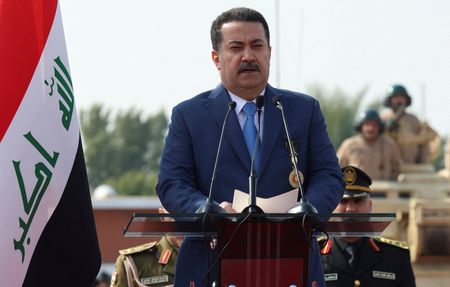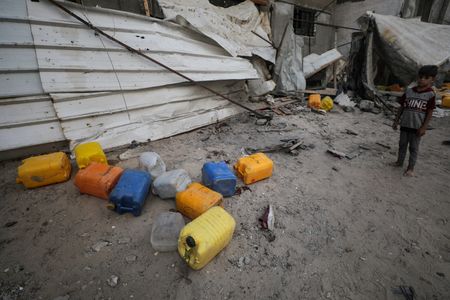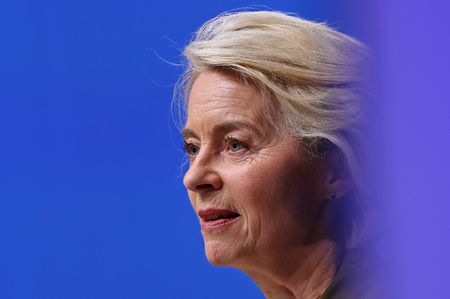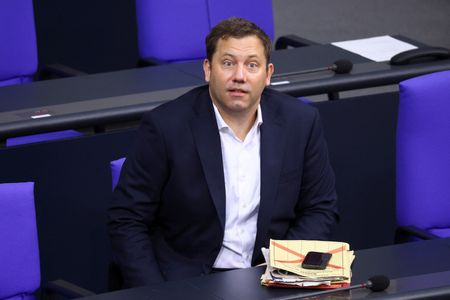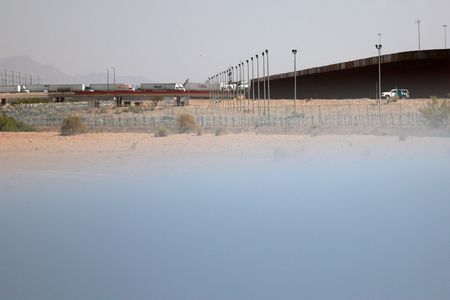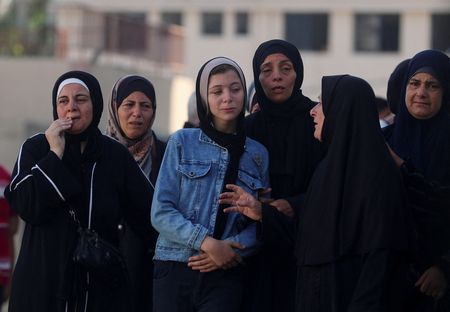By Timour Azhari
(Reuters) -Iraqi Prime Minister Mohammed Shia al-Sudani said on Monday he would sign a bilateral security deal with Britain as well as a strategic partnership accord as he headed to London for an official visit against a backdrop of historic shifts in the Middle East.
Iraq is trying to avoid becoming a conflict zone once again amid a period of regional upheaval that has seen Iran’s allies Hamas degraded in Gaza, Hezbollah battered in Lebanon and Bashar al-Assad ousted in Syria.
A rare ally of both Washington and Tehran, Iraq’s balancing act has been tested by Iran-backed Iraqi armed groups’ attacks on Israel and on U.S. troops in the country in the aftermath of the outbreak of the Israel-Hamas war on Oct. 7, 2023.
That has led to several rounds of tit-for-tat strikes that have since been contained, but some Iraqi officials fear an escalation after U.S. President-elect Donald Trump takes office on Jan. 20.
“It is definitely an important timing, both as it concerns the path of Iraq’s relations with the U.K. and as a result of the development of the (regional) situation, which requires more consultations,” Sudani told Reuters on Monday while en route from Baghdad to London.
Sudani said the security deal between the U.K. and Iraq would develop bilateral military ties after last year’s announcement that the U.S.-led coalition set up to fight Islamic State would end its work in Iraq in 2026.
The U.K., Iraq’s former colonial ruler, is a key member of the coalition.
Islamic State was territorially defeated in Iraq in 2017 and in Syria in 2019 though concerns remain high that it may reconstitute in remote areas of Iraq and exploit a power vacuum in Syria after Assad’s ouster by Islamist rebels last year.
Regarding the strategic partnership agreement, Sudani said: “This is one of the key moments in relations between Iraq and the UK. I can describe it as the beginning of a new era in ties.” He did not elaborate.
The visit will also see the signing of major agreements with British companies, he said.
“This is not a protocol trip,” he added.
Iraq previously signed a strategic partnership deal with the U.S. that aimed to expand relations beyond the military ties established after the U.S-led invasion of Iraq in 2003, which the U.K. also joined.
That invasion toppled former dictator Saddam Hussein but unleashed years of sectarian bloodletting and war and then the rise of Islamic State, which massacred minorities and briefly established a so-called caliphate before being beaten back.
Violence has subsided in recent years and much of the country is enjoying relative stability, though the economy remains highly dependent on public-sector wages financed almost entirely by oil, leading to periodic crises when prices fall.
Sudani has tried to focus on rebuilding Iraq’s war-damaged infrastructure and expanding ties with Western and Arab states while balancing relations with neighbouring Iran, which backs an array of Iraqi armed groups but also provides crucial power and gas.
Mohammed Najjar, investment advisor to the prime minister, told Reuters that Iraq saw forging deals with Western and Arab states as a key way to prevent conflict.
“We are placing economy at the core of our national security policy,” he said, noting the purposefully business-heavy agenda of the visit despite tumult in the Middle East.
(Reporting by Timour Azhari; editing by Mark Heinrich, Christina Fincher and Alistair Bell)

